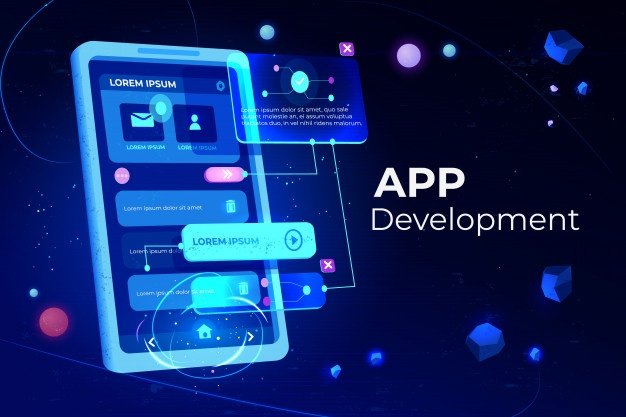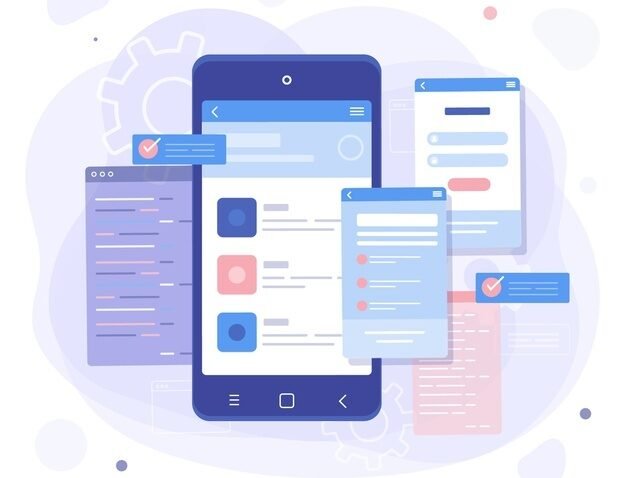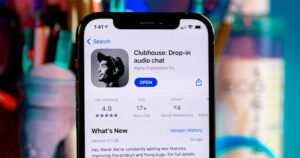Top 10 Mobile App Development Trends That Are Evolving the Industry
Technological advancement and innovative trends in mobile app development are revolutionizing the mobile application industry. Today’s smartphones and handheld devices are not just the sources of communication and social interaction but a way to perform everyday tasks smartly and efficiently. Yes, you read right, smart and efficient technology!
Mobile App Development Company & their trends have bought a great significant change in how enterprises and organizations run their business today. Almost every organization may it be small to large, now relies on building mobile applications with the latest trends to escalate their brand awareness, customer base, market value, and revenue. Mobile apps built with the latest trends can add great value that ultimately results in the growth and success of your business.
Top 10 mobile app development trends
Now let’s explore what are the top ten mobile app development trends that are evolving the mobile app industry.
-
Internet of things (IoT)
IoT is a network of physical objects that is embedded with sensors to connect, share, and collect data over the internet. The physical devices embedded with sensors can be controlled with the help of a mobile app. Like no one thought of controlling their home while sitting miles away just with the help of a mobile app. But now with the help of IoT, people can control their home appliances and devices smartly and can perform different functions such as locking and unlocking a door, adjusting the thermostat in a house from a remote location, and much more. Smart mobile apps like Samsung Smart Things, Google Nest, Philips hues, Nuki Smart Lock, etc. are great examples of IoT. IoT is just not limited to controlling a home but it’s utilized in many areas such as health, transportation, retail, manufacturing, banking, and finance.
-
Artificial intelligence and machine learning
Artificial intelligence (AI) and machine learning (ML) have brought a drastic change to the mobile application industry. It’s far beyond virtual assistants, chatbots, and AI-powered filter apps. It automates the tasks, decisions, and provides users will accurate and real-time information. The responsiveness and adaption of AI to changing environments is what makes it the top-rated mobile trend. AI predicts user behavior and performs data analytics to offer suggestions based on the user history.
The best example is the Netflix mobile app that uses the AI natural language processing (NLP) algorithm to capture users’ behavior. And that’s the reason behind the hype of Netflix because it provides a personalized content strategy to its users. Other AI features include voice translations, search-engine output, smart cameras, facial recognition, app security, and much more. Moreover, AI and ML are used in fraud detection, traffic prediction, stock market trading, medical diagnosis, image recognition, and malware filtering.
-
Virtual reality and augmented reality
The increased demand for mobile gaming coincides with the introduction of VR reality in mobile apps. VR allows users to live in a 3D environment as avatars while watching movies, playing video games, having fun, shopping, working, socializing, and doing other things. Augmented reality, on the other hand, is a better version of reality. The popular game Pokémon Go is an example of augmented reality that has generated over $1.2 billion in revenue.
L’Oreal Paris has used augmented reality in their mobile app to show users different hairstyles and colors. L’Oreal’s virtual makeup app is an augmented reality-based mobile app that allows users to see how the makeup will look on their faces without having to visit stores. Moreover, Airbnb is a leading homestay and vacation rental booking platform that uses the AR feature in its mobile app. AR-mobile app of Airbnb allows clients to visit the resort in a 3D environment before making a reservation. The demand for AR-integrated mobile apps is enormous, and will continually evolve in the future of mobile technology.
-
Beacon technology
Beacon is the wireless Bluetooth transmission of signals to smart devices operating in the beacon zone. A beacon is a device that directs users’ attention to a specific location by notifying users of the availability of their desired products and their price. Assume you’re a mobile app reseller who creates apps for retailers. Push notifications will be sent by beacons about special sales, offers, and discounts on products in that store. Customers can also book hotel rooms, shop for clothes, or buy gifts if they have a beacon app installed on their phones that sends real-time notifications. Beacon technology bridges the gap between brands and their users, and that’s the reason why it’s one of the top trends of mobile apps.
-
Wearables
People have quickly adopted wearable technologies in their daily lives to keep track of their health, weather updates, GPS, message updates, listening to music, and much more. Wearable mobile apps have made it possible to share, receive, and exchange real-time data. Wearable technology includes smartwatches, eyewear, healthcare monitors, fitness bracelets, fitness clothing, and much more. A mobile app can be used to track and access these wearable devices. The upcoming trends among wearable devices include mind-reading glasses, virtual keyboards with smart lenses, and contact lenses with virtual assistants.
-
M-commerce apps
M-commerce apps are in trend because of the increased demand for mobile phones and handheld devices. Users can access millions of products by logging in with their facial or thumb impression to do online shopping with an e-commerce app. There are numerous advantages to developing a mobile app for an e-commerce site, such as a faster purchasing process, simple payment methods, price comparison, safety and security, low-cost shopping, enhanced customer experience, and much more. Mobile wallets payments, such as Google Pay, Apple Pay, and Samsung Pay, are becoming popular, and all mobile apps must account for mobile payments to provide simple and secure transactions.
-
On-demand apps
The on-demand mobile app development trend is expected to reach the height of success by 2022. On-demand apps are the way to offer personalized or customized solutions to users. On-demand apps appear to have immeasurable potential. On-demand apps are most commonly found in food delivery apps, grocery delivery apps, medicine delivery, health, and so on. Apps like Airbnb and Uber have established the viability of this type of service. This is a fantastic opportunity for you to grow your customer base as a mobile app reseller. Your customers can add more functionality to their apps by utilizing on-demand capabilities.
-
Foldable devices
The need for a mobile-optimized app for foldable OLED devices has given birth to this trend. Users can compress or expand the screen on foldable devices based on their preferences. App developers must create apps that meet the needs and specifications of these devices. In 2018, Google officially announced foldable support on Android phones by employing its screen continuity API. According to Samsung, hundreds of popular Android apps, including Amazon Prime Video, Facebook, Twitter, Spotify, and MS Office, have been optimized for the Galaxy Fold.
-
App security and authentication
Because hackers and cybercriminals hack mobile data, users are most concerned about mobile security and authentication. AI-security features allow users to secure their mobile data. Blockchain and machine learning are artificial intelligence technologies that can remove security threats while also protecting applications from unethical hacking and data sharing with third-party users. User authentication, on the other hand, is critical to the advancement of your smart device. Face and thumb impressions can be recognized by AI-powered mobile applications on both iOS and Android apps.
-
Android instant apps
These are the Android instant apps that do not require installation. Every Android developer has access to this type of development. The advantage of this technology is that users can launch and test the app without downloading it, saving space on the phone and providing a quick overview of the features. Users who find the app users will upgrade to the full version. This Android native software is compatible with devices running Android 5.0 to 8.0, or API levels 21 to 26. Creating an instant app boosts the conversion rate by 20%. If you’re developing apps for the Google Play Store in 2022, you’ll need to create an instant version.
Final words
The future of mobile application technology is beyond our imagination level! Upcoming mobile app trends make everything quick, smart, fast, and convenient. People can instantly access mobile applications to perform different tasks and to make their lives easier. Businesses can adapt these trends in their mobile apps to elevate their business and expand their customer base. The mobile app development trend can result in increased sales and ROI of your business because users always prefer a mobile app with the latest trends.



















